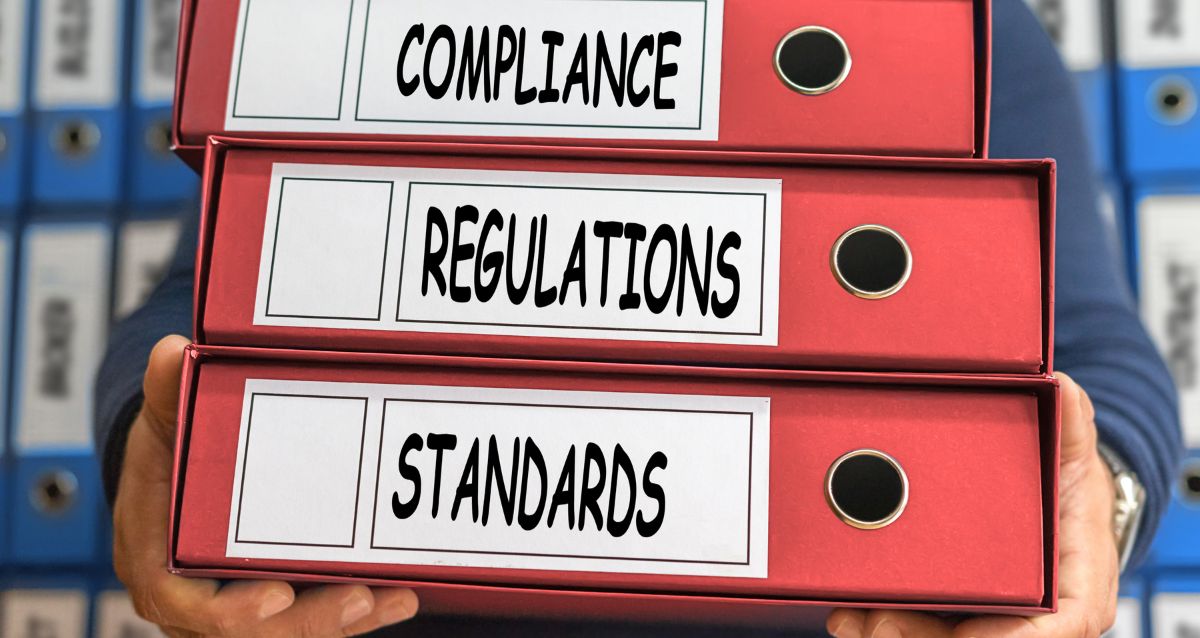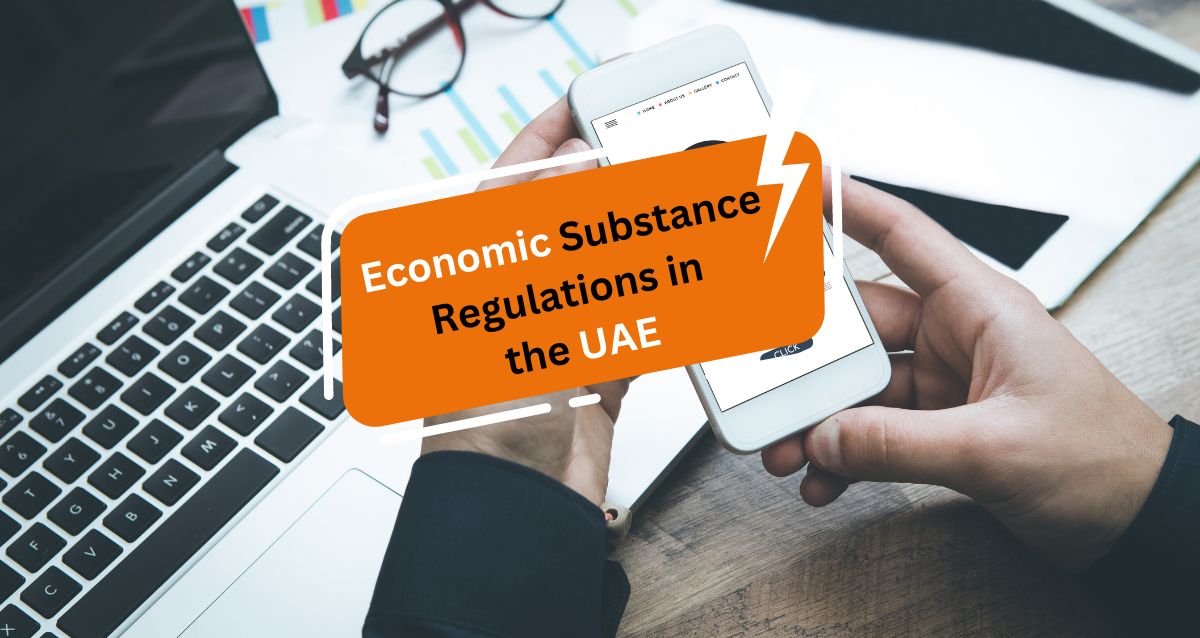Economic Substance Regulations
The United Arab Emirates (UAE) has become an increasingly popular destination for companies because of its favourable tax policies. However, it challenges the task of managing tax transparency. To address this, the UAE launched the Economic Substance Regulation (ESR) in 2019, focusing on preventing its classification as a non-cooperative jurisdiction.
Are you looking for essential information about the UAE economic substance regulations? If yes, we recommend you to read this article. We will give a deep overview of the Economic Substance Regulations (ESR) of the UAE. So, sit back with us and keep reading this article.

What exactly is the Economic Substance Regulation (ESR)?
You might be familiar with the fact that several countries have introduced Economic Substances Regulation (ESR) with low and corporate tax to comply with the international initiative to combat harmful tax methods including unlawful, evasion, or avoidance. ESR or Economic Substances Regulation requires specific legal entities to represent that they conduct substantial business activities in these jurisdictions following the Economic substance test in the UAE.
The UAE economic substance regulations have been applied to the financial years starting on or from 1st January 2019. Suppose your entity falls within the scope of the Regulation, in that case, you must submit an annual notification form to your regulatory authority and complete and submit an Economic Substance Report to the same Regulatory Authority from the end of the financial year.
You must not meet the Economic Substance Test and file an Economic Substance Report for any financial period in which you have not earned from a Relevant Activity or if your entity meets your entity or business condition of being exempted from ESR. Regardless, you must submit a Notification Form.
Suppose you fail to comply with the Regulation. In that case, you must face penalties, spontaneous exchange of information with the Foreign Competent Authority, and other administrative sanctions like revocation, suspension, or non-renewal of your entity’s trade license or permit.
Why did the UAE introduce ESR?
Do you know the exact reason behind the UAE introduction of the ERS? If not, you should keep reading. The United Arab Emirates (UAE) was included in the European Union’s list of non-cooperation tax jurisdictions because of the European Commission's concern. Therefore, the UAE introduced the Economic Substances Regulation (ESR) according to Cabinet Decision No. 57 of 2020, effective from 1st January 2019.
Economic Substance Regulation (ESR) requires the UAE entities, including branches of local and foreign companies plus offshore companies, that conduct and earn income from any of the relevant activities in order to maintain economic substance in the UAE specific to each relevant activity. If you want to know about the relevant activities, you should keep reading because we will disclose the relevant activities later.
The UAE also introduced the ESR, applicable in the free zone and on-shore, to honor its commitment as a member of the OECD Inclusive Framework on Base Erosion and Profit Shifting (“BEPS”). The regulation's purpose is to ensure that UAE entities, like your business, undertaking certain activities report annual profits that are commensurate with the economic activities within the United Arab Emirates (UAE).
What are the Relevant Activities in Economic Substance Regulation in the UAE?
The Relevant Activities have significant importance in Economic Substance Regulation (ESR) in the UAE. Therefore, you should understand Relevant Activities are under the Economic Substance Regulation (ESR) in this country. Below is the list of Relevant Activities in the ESR of the UAE:
-
Distribution of products purchased from foreign-connected persons
-
Provision of services to foreign-connected persons
-
Shipping activities
-
Holding companies
-
Fund management activities
-
Financing or leasing activities
-
Headquarters activities
-
Intellectual property (“IP”) holding or exploitation
-
Banking activities
-
Insurance activities

What requirements do UAE entities need to meet?
The UAE entities undertaking and making money from a Relevant Activity (we mentioned above) in a financial year must perform the related “Core Income Generating Activities” in the United Arab Emirates (UAE) by representing that:
-
The entity along with the relevant activities is being “directed and managed” from the UAE.
-
The entity has enough employees, premises (office space), and annual operating expenditure in the UAE relative to the activity undertaken.
You can conduct more than one Relevant Activity at a time, in which case the Economic Substance requirement must be satisfied for each Relevant Activity. Different economic substance conditions apply depending on how the Relevant Activity continues. For instance, Pure holding companies have fewer strict economic substance requirements, while "high-risk" IP-related activities have additional economic substance requirements.
Who is granted an exemption from filing a notification?
If your business entity comes under the DIFC entities that have been dissolved, liquidated or struck off before the deadline of submission, you are not required to file a Notification. All other entities that conduct Relevant activities must file the Economic Substance Notification, including Exempted licenses and those that are currently in the procedure of liquidation or dissolution.
Who is exempt from filing a report?
If you are the following licensees those are considered “exempted licensees” under the amended Economic Substance Regulation (ESR) and are not required to file a Report:
-
Entities that are tax residents outside the United Arab Emirates (UAE).
-
Entities are exclusively owned by individuals who are residents of the UAE, Entities that are not part of a multinational group and Entities only carried out business activities in the UAE.
-
Investment fund
-
A branch of a foreign business whose relevant earnings are subject to corporate tax in a jurisdiction other than the UAE.
In short, exempted licensees must not file a report but must file a notification in order to confirm and substantiate their exempt status. If you want to know more about the exempted licensees, we recommend you consult Flyingcolour Tax Consultants.
How can Flyingcolour Tax Consultants help you?
The UAE Economic Substance Regulations (ESR) has been applied to the entities that conduct the Relevant Activities under the Regulation. If you perform the Relevant Activities, you must file the notification or report. Flyingcolour Tax Consultant can help you prepare both reports and notifications. In addition, our experts can help you file these documents.
To learn more about Economic Substance Regulations in the UAE, book a free consultation with one of the Flyingcolour team advisors.
Disclaimer: The information provided in this blog is based on our understanding of current tax laws and regulations. It is intended for general informational purposes only and does not constitute professional tax advice, consultation, or representation. The author and publisher are not responsible for any errors or omissions, or for any actions taken based on the information contained in this blog.
